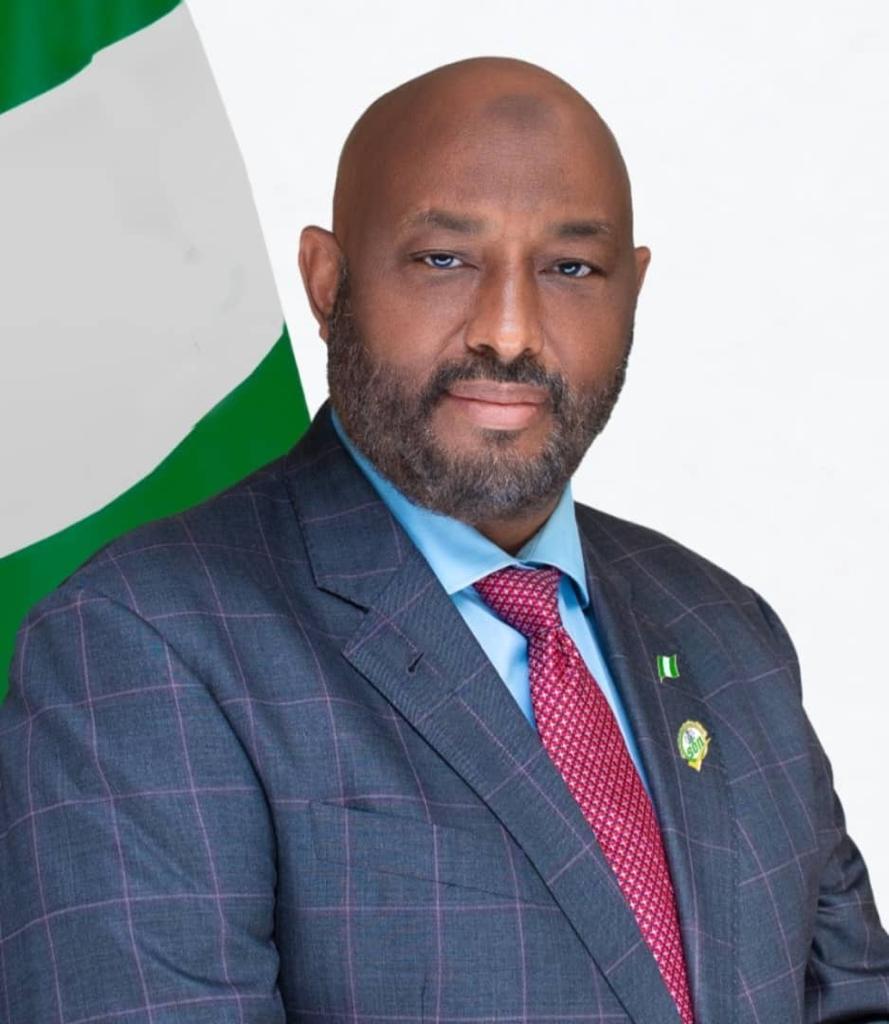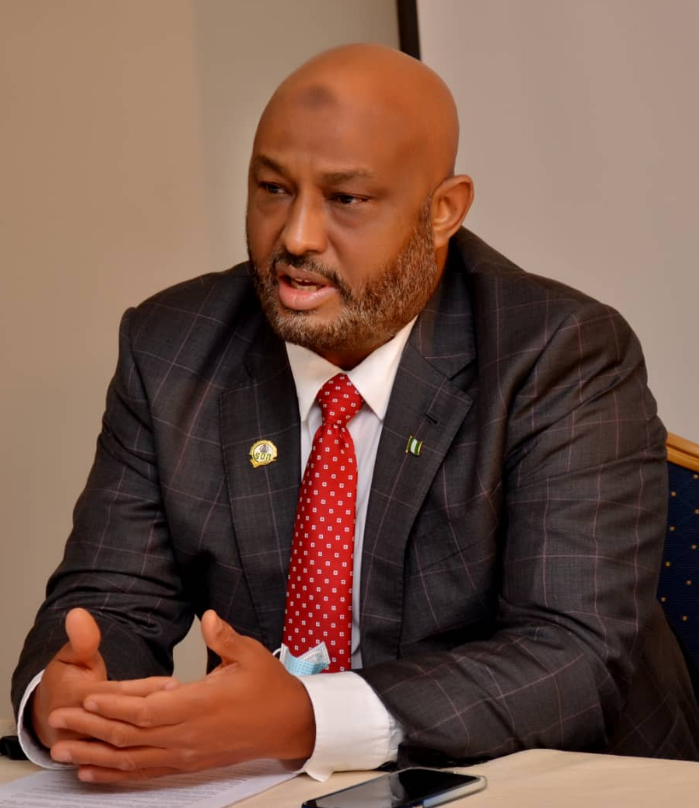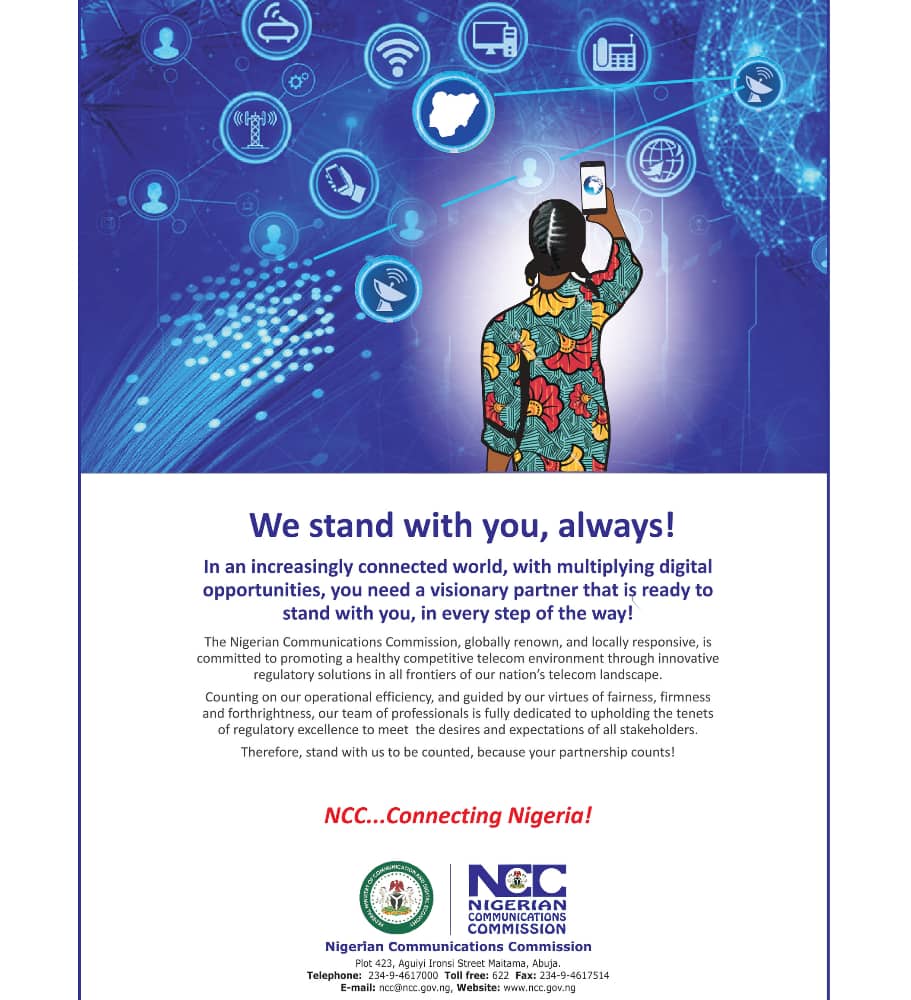
Salim
Director General/Chief Executive Officer of the Standards Organisation of Nigeria, [SON], Mallam Farouk Salim tells Humsimedia that everyone must quit buying substandard products which are responsible for closure of indigenous factories, job losses and also fuelling insecurity in the country. Excerpts:
You came into the SON with an impressive CV and vast experience from the private sector. How has these helped you on your present job?
The experience of working overseas in a different culture and different environment helps a lot because you see things differently unlike some people who have not been exposed to other places before. So in a positive way, it has influenced me into creating things that are different, not continuing with the old system. But sometimes it’s a bad thing too because then you don’t understand how to react to local problems and how to deal with situations that ordinarily, a person who has been in the system understands better. So it’s a mixture of good and bad but mostly good.
How will you compare the way things are done between the private sector and government?
Well, the private sector, most of it is not only result oriented but is very sensitive to profit and balances and results. But in the public sector, sometimes, you have to look far ahead for the benefit of the people. Not everything that benefits people is very profitable; sometimes you have things to be done because you to protect peoples’ lives and property. So public sector and private sector are totally different industries. In fact, the approach has to be different too.
What was your vision for the SON when you assumed office?
My vision when I came here is to make it better than when I saw it so that when I leave this place, its better known, its more efficient than when I came, its more responsible to customer needs and more responsible to industry needs. So just to increase the services already rendered before I came but to make it more efficient.
Looking back at your stewardship so far, what can you say about your achievements?
I think we’ve made great strides in administration, because we created more opportunities for efficiency in administration by creating regional directorates where most problems don’t have to go beyond the region; they don’t have to wait for Abuja to respond before they take action. We have improved the quality of our services. We’re building more infrastructures, we’re building more offices, more labs and we provide more opportunities for our employees to do their job more efficiently by providing them with better materials to work and equipment like better operational vehicles. Also, the efficiency has increased because we’ve paid attention to how we can use what we have to make it more efficient and much better. But progress is a continuous situation. Where we were yesterday, is the beginning point today and tomorrow, we’re going to be in the progress place where we need to be and then we go from there. So the Organisation as I would like to think, is getting better off from the time I started work in September 2020.
More Directorates and Departments have been created during your tenure. What are they meant to achieve?
Primarily, efficiency and to bring services closer to the people, the customers and in this case, our customers are the industry, the merchants, the customers that buy the products from the industry and the merchants, the employees of the industries and companies. So its easier for work to be available if you don’t have to leave Anambra and come to Abuja to do something with SON, then it makes your life easier. If you have to log on on the internet instead of getting on a plane to fly down to Lagos or Abuja to do your activity with SON, then it makes your life easier and its cheaper, its more efficient for the customer. So the Directorates’ purpose is to make the job easier, nearer to the customer and available indeed.

How has your Organisation fared in the area of ensuring standards in Metrology, Management Systems Certifications, Steel Bars, Electrical Cables and LPG Gas cylinders etc; and their enforcement?
The Standards, as at our last Council meeting, about 900 standards were approved. The latest one I can think of is standards on fish feed and poultry feed. So these standards are being done. Our enforcement, we are working on enforcement. Every day is an enforcement day. We have a whole Inspectorate Department and a secret area where we do investigations which is very important for the Organisation. We have established a lot of new standards for the industry and we have done a lot of enforcement on substandard products from the markets, from the industries.
The Iron Rods you mentioned, we have several occasions in my two years, of actually going into factories in the middle of the night, to see the things they’re doing and in some situations, we catch them red-handed cheating and then we force them to melt everything they have so they can do it the right way and then we fine them and they pay the money directly to the Federal Government’s Treasury Single Account, [TSA]. We have confiscated used tyres and new ones that are stuffed in the market.
We have reason to take people who were adulterating oil to Court and some of them are convicted, some of them are still undergoing trial. We have confiscated goods that were imported into the country that were substandard. Some of them we have destroyed, some of them, we are still waiting for permission from the Courts to destroy them. So its an ongoing project and we’ve made a lot of progress in that process.
The worrisome trend in building collapse cases across the nation still continues. What are the identified problems and what can be done to curb future occurrences?
The last three or four building collapse that happened in Lagos, we sent our team to take samples of concrete, of iron bars and other things that were supposed to be. And in all of the situations, what we discovered is, the products used in the buildings are not below standards. The problem is how they were used. For example, if you have a bag of cement, the actual cement is up to standard but how you mix it and how many proportions used with sand is where the issue is.
And those are the kind of things that we as an Organization, we cannot monitor all the time because there are millions and millions of buildings going on across the country. The same thing with the quality of blocks. We recently purchased block testing machines and very soon, every office in our Organization will have a block testing machine where they can go and test all the blocks. So with buildings, it involves a lot of agencies.
They have agencies in the State governments that inspect buildings, once the buildings are in progress. There are agencies that give permission, with state governments and even the Federal Government, so a lot of these, when a building collapse, there are too many people involved that should have done their jobs and some of them have not done it. And this, the investigation done by the authorities responsible for investigation is sometimes, when they are done, we don’t have the ability to see the results but I know that if the stuffs used in building were investigated then, and most of them were up to standard.
Its how they were used that is the problem. I mean, there was a building that collapsed in Lagos last year or early this year that was supposed to be approved for 10 storeys and the contractor added another 10 storeys on top of it. So it doesn’t matter if your iron rod is up to standard or your cement is up to standard, the foundation is not up to standard and that’s why the building collapsed. So there are several multiple reasons for buildings to collapse and these are things that require serious investigations.
Still under your stewardship, Kano, Anambra and Lagos are currently all Directorates. With the level of commercial activities going on there, what tasks have you set for them to achieve?
Well, the Directorates are doing exactly what the headquarters is doing. They do everything that we do. They go from training, certification, inspection, work with stakeholders to create standards, and that is the reason why these Directorates were created, because then, they don’t have to come to Abuja or Lagos to do those activities. So all the activities that we do as an Organisation, except the presence of the Director General, they can do it in those regional offices. And that was the purpose of it because then it will be closer to the consumers and to the users of the services.
The SON has signed a Memorandum of Understanding with some state governments on SMEs. Why the interest in the SMEs and who are the beneficiaries?
There are about 40 million SMEs in the country and reports by financial institutions have proven that this is the moment driver of the economy in the country. Small Scale industries employ 4, 5, 6, sometimes up to 20 people per factory. So if you multiply 20 by 40 million, you are looking at too many people for employment in the country and our biggest problem in this country is lack of gainful employment. So we have to focus on those industries to make their products up to standard, to package their products, to market their products. That way, they can employ more people and we’ll have less unemployed people on the streets. And less unemployed people on the streets, that means less insecurity, less terrorists, less bandits and less separatists. Employment is one of the best ways to ensure security for the whole country.
How effective has been your enlightenment campaign towards ensuring compliance with standards by local manufacturers?
Its an ongoing project. We’re effectively doing what we need to do and we’re seeing results. In the industries, the lubricant industry is very good, the wire cable industry is doing very well, even the iron and steel industries are doing well. But we still have more grounds to go. Recently we had a sensitization with producers of rice in Kano where we sensitised them and it was a very positive response from the people. So its a 24/7 project we’re doing. We’re doing well with the news media, we have programmes on television in different languages and in pidgin. So its a very good progress we’re making but we still have ways to go.
With the African Continental Free Trade Agreement, (AfCFTA) in place, what is SON doing to ensure substandard goods don’t flood Nigerian markets?
One of the issues we are having is that we do not necessarily have presence, full time access to the ports in the country. And unfortunately, 85 percent of products coming into the country come through the ports in Lagos. We try our best to work with other agencies and they are working with us but it’s not enough. We need to be allowed to be fully present so we can do our jobs and for the meantime, in the last 10 years, the Organisation has a robust intelligence unit. We have a robust inspectorate where we go to the markets, we go outside the ports to make sure products coming in from the outside that are already cleared are up to standard. Its very hard work because the markets in the country are many and the people sometimes are lawless, they will attack government officials trying to do their jobs. But its a whole ocean of problems so when you take a few buckets of water out of it, you make a small difference but it’s not enough. There’s still room for improvement.
Where will you want to see the SON in the next three to six years, for instance?
I see the SON in the next few years to be recognised by both the industry and the consumers as the biggest partner in progress where people, both the industries and the markets will reach out to us to make sure that we help them in the areas they need help. We are partners in progress and am sure, in the next few years, with the kind of activities that we are doing now, people will see us as partners in progress and patronise us and encourage the other people to work with us. Am very optimistic that the Organisation has a lot of light in the tunnel that we can see.
What’s your advice to staff of SON and the consuming publics?
The staff of the Organisation, I always advice them and will continue to advice them to remember that our main job is service. Service to the people, service to the industry, service to the markets. We are supposed to work hard to make sure our children, our parents, our cousins, our brothers who go to the markets to buy products do not risk their lives or waste their money buying products that are substandard. So I tell our workers in the Organisation that whenever you’re doing this work, remember you’re doing it for yourself, your family, your grandmother, your mother, your brother and your sister. So you take your job more seriously and more practically.
The industry, we always tell them the fact that in order for them to survive, especially with this freedom of movement of goods across West Africa, is to make sure they partner with us into producing goods that are very highly up to standard and they are responsible so that the goods that are verified by SON will be received well in Johannesburg or in Niger or in Mali. That’s my message to them. Work with us. We’re here to make you be more efficient, make more money, use your money wisely and efficiently if you are the one buying the product and protect people who would otherwise be exposed to danger. So we encourage people to come to us when they see goods that are substandard. Don’t throw it away and buy another one.
Bring it to us with your receipt and we’ll make sure that we negotiate with the person selling you the product to get your money back and then we’re going to use our departments to investigate the source of those products and make sure they don’t come into the market again. And I want people to realise that its very important for us to be responsible in paying attention to that, because if you go to the market and ask for the cheapest products, what you are doing is you are encouraging these substandard product marketers because you’re giving them more money. So now, they will go and make more products like that.
And the problem with that is, when they do that, our factories that are doing legitimate work producing up to standard goods will not be able to sell their products because they will be more expensive than the substandard products. And when they cannot sell their products, they cannot pay taxes, they cannot help the city they are working in or the village they’re working in, and the people who are working there would lose their jobs. If one person working in a factory loses a very well paying job, at least 20 people in his family and extended family are going to lose their source of income. So whenever you buy a substandard product, remember you’re helping by closing factories, by encouraging insecurity in the country, by making sure that bad people continue to collect more money. We have evidence that some of these substandard products are sponsored by some of these organisations that cause insecurity in the country. So the more you buy these substandard products, the more you are giving terrorist organisations money to buy guns and to destabilize our country and our society. So its a very serious measure. We need to take those jobs seriously. An act of buying a substandard light bulb or phone charger deliberately, is already going to finance these people to do the bad things they’re doing to our communities. So we should have more civic responsibility to make sure that we don’t encourage people to buy bad things and we don’t buy bad things ourselves and when we see people doing bad things in our neighborhood, we report them, because some of these people are producing substandard products in the neighborhood. And everybody in the neighborhood knows the person doing bad lubricant or bad product but they don’t report them, because they don’t think it affects them. But now, if people realise, any person doing bad things in the neighborhood, it’s affecting you and your family in the future, then we’re already making progress in solving the problem. So awareness, responsibility and reporting are very important.


